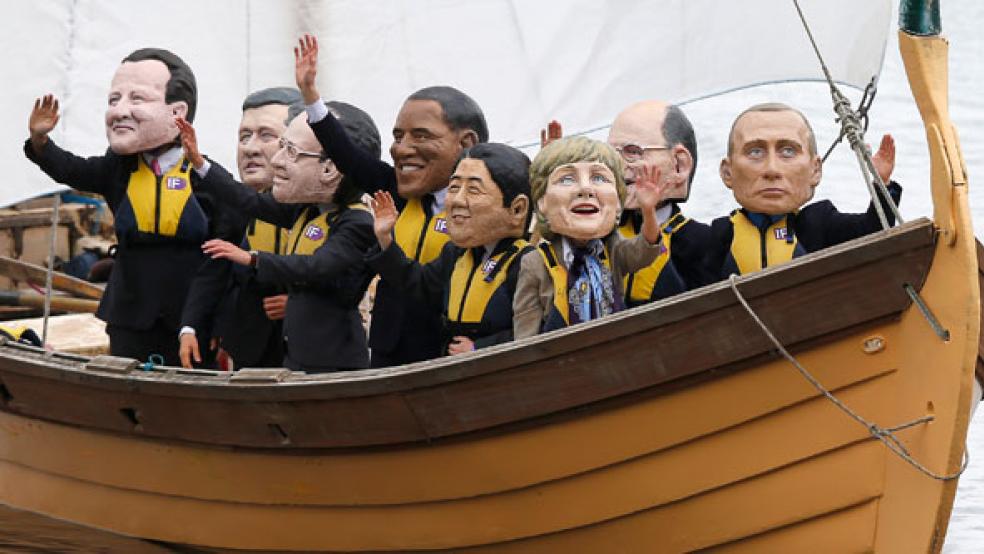Leaders of the Group of 8 (G-8) nations were supposed to be talking about economic growth and trade deals at their meeting in Northern Ireland. But events in Syria and the continuous string of leaks from Edward Snowden have derailed that agenda.

President Obama and British Prime Minister David Cameron have reportedly confronted Russian President Vladimir Putin on his continuing support of Syrian President Bashar al-Assad while Putin fired back, warning Obama not to institute a no-fly zone over the country.
Putin recently sent missile to aid Assad in the country’s civil war, and has likened the rebels Assad is fighting to cannibals. Obama came through on his pledge to arm the rebels after U.S. indicated Assad had used chemical weapons in the conflict, which has already claimed more than 93,000 lives. Some lawmakers continue to push the president to impose the no-fly restrictions.
RELATED: MARCO RUBIO: OBAMA COULD ARM AL QAEDA IN SYRIA
But Syria isn’t the only distraction. The Guardian reported today that the British, with the help of the Americans and Canadians, had spied on diplomats during the 2009 G-20 conference in London.
The document was the latest in s string of leaks about U.S. intelligence gathering provided by Edward Snowden (who did a Q&A with readers here). If he wanted to disrupt the G-8, his timing was impeccable: it’s never good to reveal spying on diplomats at a conference of diplomats.
All of this distracts from the issues the G-8 was supposed to address: the EU-U.S. trade deal and coordinating action to confront the continuing European financial crisis.
America and Britain did announce the start of negotiations on the deal, which officials said would add $157 billion to the EU economy and $133 to the U.S. economy. Negotiations are expected to start in Washington next month.
But there are many bumps in the road toward making a deal, most notably the French. French President Francois Hollande, who has adopted socialist policies in the wake of the financial crisis, has tried to limit the scope of the deal. This has angered others in Europe, a continent still stuck in recession and with little hope of growth outside of northern Europe.
“It’s part of this anti-globalization agenda that I consider completely reactionary,” European Commission president José Manuel Barroso said of the French position in an interview with The New York Times prior to the meeting. “Some say they belong to the left, but in fact they are culturally extremely reactionary."
For now, the only reacting that’s occurring in Northern Ireland is to events that have nothing to do with economics. This is bad news for a monetary union where 5.6 million people under 25 are out of work.


